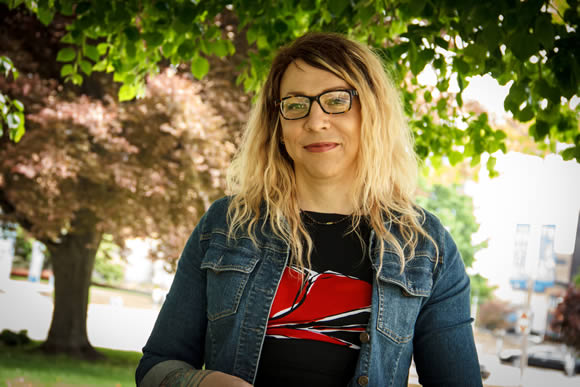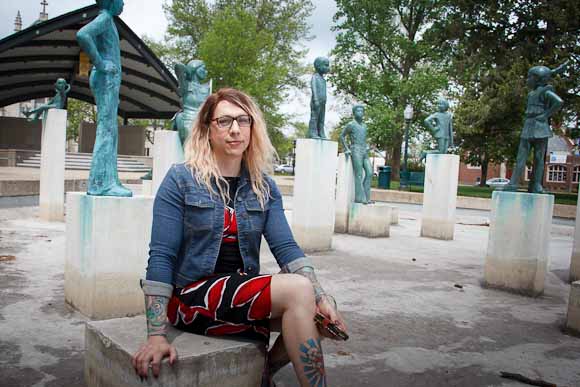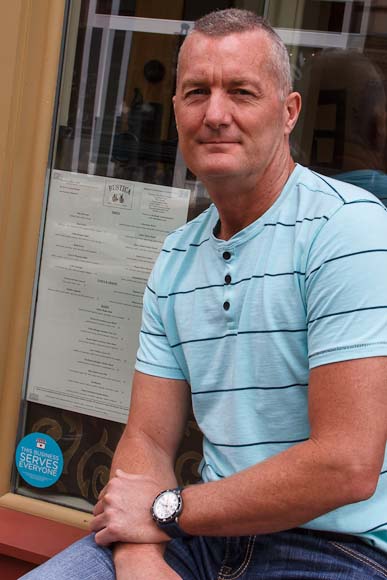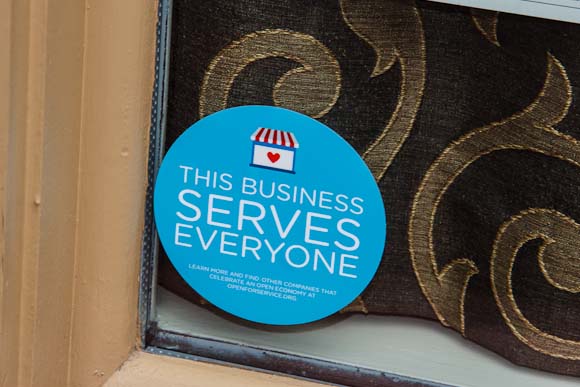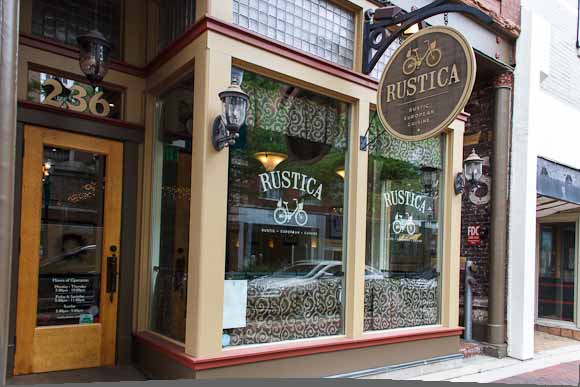Lack of statewide anti-discrimination laws leaves LGBT community vulnerable
One year ago, after struggling with her gender presentation for decades, Davison Nicolas came out as a trans woman. “I knew I’d finally turned the corner and was ready to create my new life (and) I didn’t want to waste a second,” she says. While she found coming out personally liberating, predictably, it also had a dark side.
Nicolas, a therapist with a masters degree in Community Counseling, was fired shortly after her boss learned that she had been coming out to co-workers and some of her clients. She found a new job a few months later, a gig she describes as “the best job I’ve ever had,” working with families in crisis, helping them navigate juvenile probation.
Equality Michigan is a statewide LGBT advocacy and anti-violence organization that works at the local and state levels to enact anti-discrimination laws and support victims of discrimination and hate crimes. They track upward of 50 cases per year of employment discrimination, and under Michigan law there is presently no recourse for challenging the kind of discrimination Nicolas experienced.
That’s because Michigan does not have a state-wide law that bans discrimination against lesbian, gay, bisexual, and transgender (LGBT) people. The Elliot Larson Civil Rights Act, passed in 1976, bans discrimination based on religion, race, color, national origin, age, sex, height, weight, and marital status. Over the decades it has been revisited to attempt inclusion of lesbian, gay, transgender and bisexual people, but those have failed every time.
Religious Freedom Restoration Act
Like Indiana, Michigan has recently entertained a series of Religious Freedom Restoration Act (RFRA) bills, which, if put into law, would effectively legalize discrimination against the LGBT community with a corporation’s right to cite “religious freedom” as the basis for doing so.
According to State Representative Jon Hoadley, the new RFRA bills go well beyond the original intent of RFRA bills at the federal level, which were introduced in the early ’90s. Those bills say that government can’t go out of its way to make laws that are overly intrusive to the people that are dealing directly with government. Hoadley calls the new bills, “Dangerous perversions of the First Amendment that opens the door to broad discrimination in the state.”
Sommer Foster, Director of Political Advocacy with Equality Michigan, says that RFRA was one of the first bills introduced to the state senate this year, and has already been seen in the Senate Judiciary Committee. Though they have not yet taken a vote, they have indicated an interest in moving the bill forward.
“We’re operating under the assumption that there are the votes to pass it, and we will hold Gov. Snyder to his word that he would veto such legislation,” Foster says.
Local Community’s Responses and HB 4052
Without a state-wide ban, the burden is placed on individual communities in the state to determine whether or not to include sexual orientation and gender presentation in their anti-discrimination ordinances. The City of Kalamazoo and Kalamazoo Township are among 38 communities in Michigan that offer protections against this kind of discrimination. In 1972, East Lansing was the first city in the country to include protections for the LGBT community in their anti-discrimination ordinance.
The introduction of a new bill, HB 4052, highlights the limitations and vulnerability in the absence of a statewide law banning discrimination. 4052 limits the powers of units of local government to adopt, enforce, or administer certain local mandates for employers; to prohibit local minimum wage, benefit, or leave requirements; to prohibit certain ordinances regulating the development of real property within units of local government; and to void local requirements that are adopted in violation of this act.
Foster explains that the way the bill is written means that it could void the anti-discrimination protections set in place by local municipalities for LGBT employees, and that it could also affect domestic partnership benefits protected in those communities.
Hoadley says 4052 is the furthest reaching bill of its type in the country. He says that the bill is being promoted with the idea that it will create a better business climate, but Hoadley says that’s “disingenuous.” He says he believes the impetus behind this bill is that “…all future innovation that would rest at the local level now has to run at the state level, which is much easier for special interests to control.”
The Implications
The absence of a statewide law prohibiting discrimination on the basis of sexual orientation and gender presentation has allowed for some business owners to blatantly state their refusal to serve gay, lesbian, bisexual, and transgender people. From an Indiana pizza establishment to a Michigan diesel auto mechanic shop, business owners have recently flaunted their religious tenets as justification to discriminate.
On the other hand, there are other business owners who feel compelled to speak out on behalf of their LGBT clientele. Bill Weier, co-owner of Rustica Restaurant in Kalamazoo is one of them. Last month, Rustica’s Facebook page made a post, stating, “At Rustica we value the diversity of our clientele as much as we value the diversity of the wonderful products Michigan has to offer.” Accompanying the post was an image of a sticker on their storefront, that reads, “This business serves everyone.”
Weier says he first saw the sticker, offered by Open for Service, as business owners in Indiana began hanging them in their windows to protest their state’s new RFRA law. “I placed the sticker in the window at Rustica for several reasons. The proximity of Indiana to Michigan…the fact that our own Republican legislature is considering similar legislation (House Bill 5958)…and my personal belief that any form of discrimination has no place in a healthy society.”
Nicolas says she feels the implications of a sickness in society, daily. “I can’t speak to the experience of gay or lesbian individuals, but I can’t think of a single day where I don’t contend with some level of either institutional, personal, or micro-aggressive discrimination,” she says.
Nicolas draws on her extroversion, education, and professional background to advocate for herself in every-day situations. And she’s had some significant successes. From taking time to educate a store clerk who didn’t want her to use the fitting rooms, to getting her place of employment to change over to gender-neutral bathrooms, and even using her experience at a county courthouse to push through an ordinance that does not allow denial to a person of their preferred restroom, Nicolas speaks out for not just herself, but the greater community, as she navigates her life as an openly trans woman.
But, not everyone has this capacity to self-advocate in the myriad instances they face throughout their days. Because of the absence of laws that protect gay, lesbian, bisexual, and transgender people, and because of the vulnerability that it creates within that community, Nicolas says that many of the trans people she knows struggle with insecurity, social phobias, professional difficulties, and lack of family support. It’s the every day experience of living life as a marginalized person that keeps them from being able to continually advocate for themselves and the community, as a whole. It becomes exhausting.
Nicolas says she believes the tide is turning as more people hear these stories and become more open to understanding each other’s experiences. But, she also believes that the kind of thinking that allows and perpetuates discrimination will not change in her lifetime because, she says, “there is simply not enough social incentive for the unaffected to care and to insist on change of policy, which eventually leads to acceptance, which eventually leads to assimilation.”
Acceptance and assimilation is much more likely when mandates prohibiting discrimination are in place. And clearly, relying on local municipalities’ ordinances to act as Band-Aids in place of a statewide law is not sufficient. Foster explains, “HB 4052 really makes the case that we really need to update the Elliot Larson Civil Rights Act. The LGBT community shouldn’t have to depend on these 38 municipalities for a small bit of protection in the state, and they should be able to have protection no matter where they go in the state.”
You can find your state senator and representative to tell them how you feel about the proposed legislation by visiting Equality Michigan’s website.
Kathi Valeii is a writer, speaker, and activist living in Kalamazoo. She writes about gender-based oppression and full spectrum reproductive rights at her blog, birthanarchy.com.

